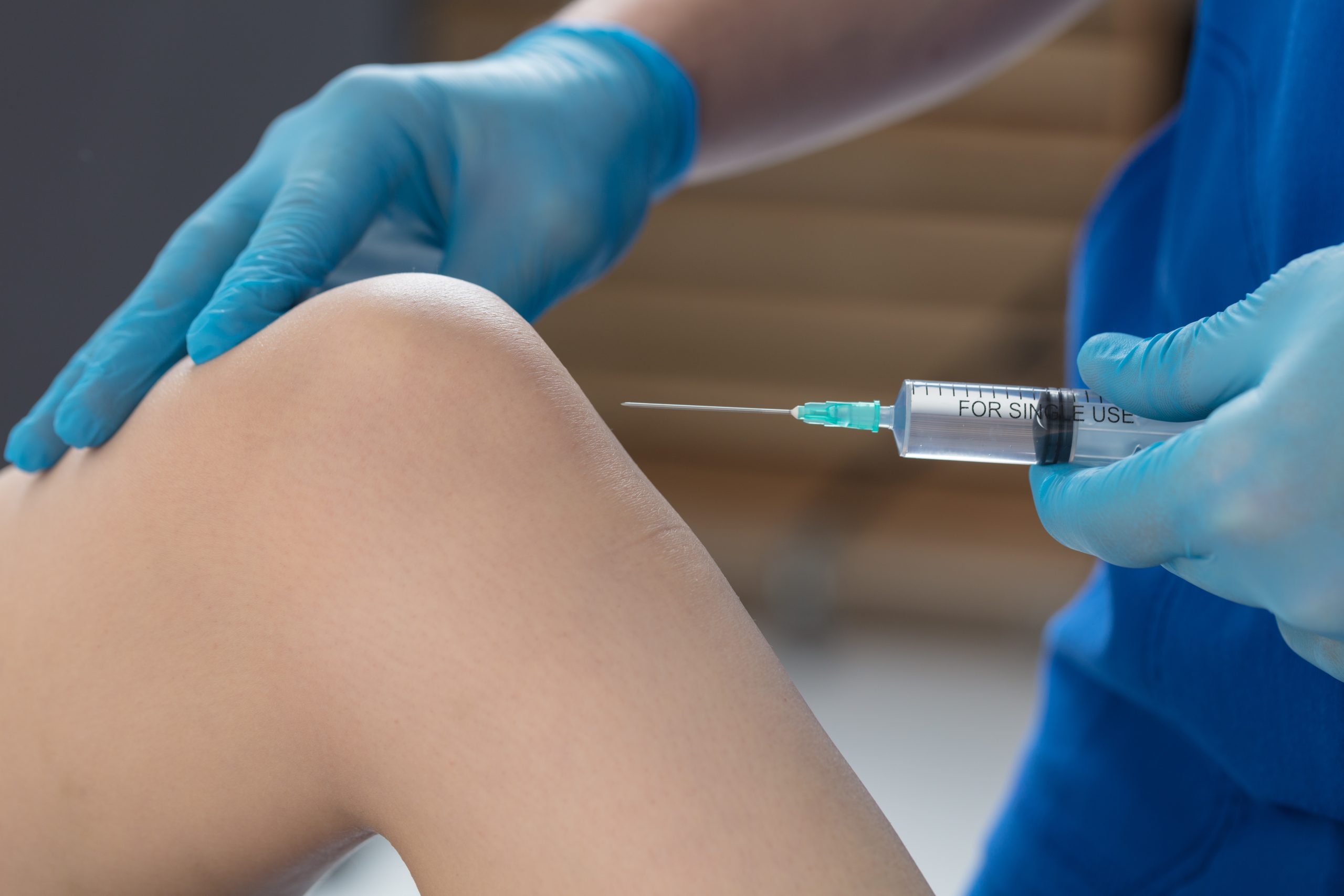



Monovisc injections represent a significant advancement in the treatment of knee cartilage issues, offering hope to those suffering from osteoarthritis and similar conditions. This hyaluronic acid-based treatment aims to improve joint lubrication, reduce pain, and enhance mobility. Given its importance, many patients are keen to understand how long it takes for a Monovisc injection to start showing results. This article provides a comprehensive overview, tailored to those exploring their treatment options at the London cartilage Clinic.
Monovisc is a single-injection treatment designed to supplement the viscous properties of the synovial fluid in the knee, thereby improving its lubricating function and cushioning ability. This non-surgical option is particularly beneficial for patients with knee osteoarthritis, aiming to alleviate pain and improve joint mobility.
Monovisc’s primary component, hyaluronic acid, closely mimics the naturally occurring synovial fluid within the joints. When injected into the knee, it integrates with the existing synovial fluid, enhancing its thickness and lubricating properties. This process helps to reduce friction and wear on the cartilage, providing pain relief and improved joint function.
The time it takes for Monovisc injections to show their effects can vary significantly among individuals, influenced by several factors, including:
Monovisc injections are most suitable for individuals experiencing mild to moderate osteoarthritis symptoms in the knee. Ideal candidates are those seeking to manage their symptoms with non-surgical options and have not found adequate relief from oral pain medications or physical therapy.
Most patients begin to notice improvements within a few days to a few weeks post-injection, with significant relief typically observed within a month.
The duration of pain relief varies, but many patients report experiencing benefits for up to six months following the treatment.
While generally well-tolerated, some individuals may experience mild side effects such as injection site pain, swelling, or stiffness, which usually subside within a few days.
Monovisc is typically recommended for mild to moderate osteoarthritis. Patients with severe osteoarthritis may need to explore other treatment options.
Light to moderate activities are encouraged as they can promote joint health. However, it’s advisable to avoid strenuous activities for the first few days post-injection.
While the effects can last up to six months, treatment can be repeated as necessary, following consultation with a healthcare professional.
In summary, Monovisc cartilage injections offer a promising avenue for alleviating knee pain and improving joint function in individuals with osteoarthritis. The time to experience relief can vary, but most patients report noticeable improvements within the first month after treatment. As with any medical intervention, discussing your specific situation with a healthcare provider at London Cartilage Clinic is crucial to determine if Monovisc is the right option for you. Our commitment is to provide you with the highest standard of care, tailoring treatment plans to meet your unique needs and help you return to your preferred lifestyle.
All our treatments are selected to help patients achieve the best possible outcomes and return to the quality of life they deserve. Get in touch if you have any questions.
At London Cartilage Clinic, we are constantly staying up-to-date on the latest treatment options for knee injuries and ongoing knee health issues. As a result, our patients have access to the best equipment, techniques, and expertise in the field, whether it’s for cartilage repair, regeneration, or replacement.
For the best in patient care and cartilage knowledge, contact London Cartilage Clinic today.
At London Cartilage Clinic, our team has spent years gaining an in-depth understanding of human biology and the skills necessary to provide a wide range of cartilage treatments. It’s our mission to administer comprehensive care through innovative solutions targeted at key areas, including cartilage injuries. During an initial consultation, one of our medical professionals will establish which path forward is best for you.
Contact us if you have any questions about the various treatment methods on offer.
Legal & Medical Disclaimer
This article is written by an independent contributor and reflects their own views and experience, not necessarily those of londoncartilage.com. It is provided for general information and education only and does not constitute medical advice, diagnosis, or treatment.
Always seek personalised advice from a qualified healthcare professional before making decisions about your health. londoncartilage.com accepts no responsibility for errors, omissions, third-party content, or any loss, damage, or injury arising from reliance on this material. If you believe this article contains inaccurate or infringing content, please contact us at [email protected].